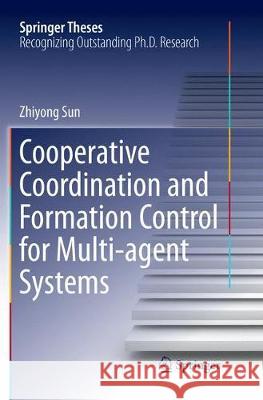Cooperative Coordination and Formation Control for Multi-Agent Systems » książka
topmenu
Cooperative Coordination and Formation Control for Multi-Agent Systems
ISBN-13: 9783030089498 / Angielski / Miękka / 2018 / 179 str.
Kategorie:
Kategorie BISAC:
Wydawca:
Springer
Seria wydawnicza:
Język:
Angielski
ISBN-13:
9783030089498
Rok wydania:
2018
Dostępne języki:
Numer serii:
000416125
Ilość stron:
179
Waga:
0.32 kg
Wymiary:
23.37 x 21.59 x 1.02
Oprawa:
Miękka











